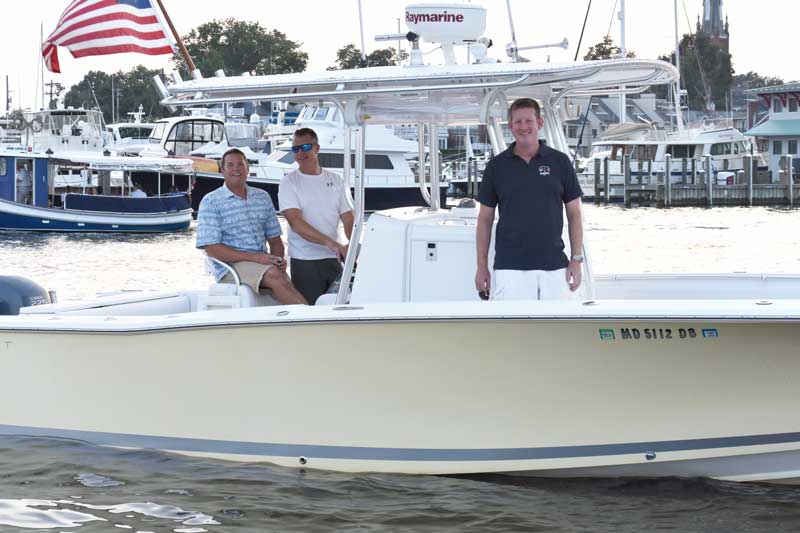What a novice boater has learned about being a good first mate on someone else’s boat.

My buddy finally decided to buy his own boat. Luckily for me, his boat is newer, bigger, and faster. The entire season we’ve never once opted to take my smaller boat when we’re both hitting the water together, which is fine by me. It saves me money on fuel, maintenance, and wear and tear. However, this new arrangement has raised a very important question: What are the proper etiquette and expectations when you are a guest on someone else’s boat and acting as first mate?
It is important to keep in mind it’s not your boat. The first mate and captain are going to have varying opinions on how things should be done. So long as the captain is not making unsafe decisions, he or she has the final word. You can suggest an alternative way of approaching a situation, but remember, no one likes a know-it-all, especially on their boat. Do try and share your knowledge and lessons learned, but in a passive and helpful manner.
The first mate should ensure the boat is squared away and let the captain focus on operating the vessel safely. The on-water tasks to keep a boat “ship-shape” include: organizing dock lines and other ropes, re-stowing gear, helping balance the load, keeping an eye on the engine for signs of trouble, monitoring the marine and weather conditions, and general docking assistance. On-land tasks can include: dock lines, ensuring proper oil levels, prepping coolers, stowing gear, and helping to clean and unpack the boat at the end of the trip. If trailering, make yourself useful and follow the directions of the captain. No matter what the task, guests should all have the same goal of making the captain’s life easier and allowing him to focus on safely operating the vessel.
Now for the controversial topic of the all-mighty dollar: For me, my boat is cheap to operate, and I never expect anyone to give me gas money or even fill the cooler, which is good, because no one ever does. And that’s just fine with me. But for people with larger boats that are expensive to operate, what is appropriate? The easiest way to help out a captain is by contributing gas money, beverages, or food. How each one is applied differs. For example, you do not need to offer gas money every time you go out. If you go out with the captain on a semi-regular basis, maybe throw him or her some gas money every three or four trips. It doesn’t have to be a fortune but enough to signal to the captain that you understand the cost of fuel and are grateful to be on the water.
As for beverages, you should provide drinks for the captain every trip. This should be a fairly cheap gesture, as the captain should not be drinking excessively or at all while operating the boat. If he is, you may want to find a new boat to freeload on. Lastly, occasionally offer to buy some food when you’re at a dockside restaurant. If you’re tactful as my wife when we go out to eat, wait for a cheap meal and pay the tab. You get all the credit, at a fraction of the price.
It is also important to remember that oftentimes, others on the boat may not be aware of the responsibilities of boat guests. Lead by example. Unless someone is totally out of it or just too selfish to lend a hand, most halfway decent people will pitch in when they see you undertaking tasks around the boat. Also keep in mind that if other guests are unfamiliar with boats, they may not understand what needs to be done or how to do it. Take the time to show them how various tasks are done, and be patient. Look at it this way: the more people you teach, the less work there is for you.
I love going out on my boat alone or with other people. That being said, I do really enjoy being the first mate on someone else’s boat. You have less responsibility. You’re not beating the crap out of your boat, and your wallet is a little thicker. I also really enjoy being able to have a few extra beverages that I normally wouldn’t if I were the captain.
The views in this article should not be interpreted as fact. It’s just the perspective of a guy with a boat.
By John Lockwood